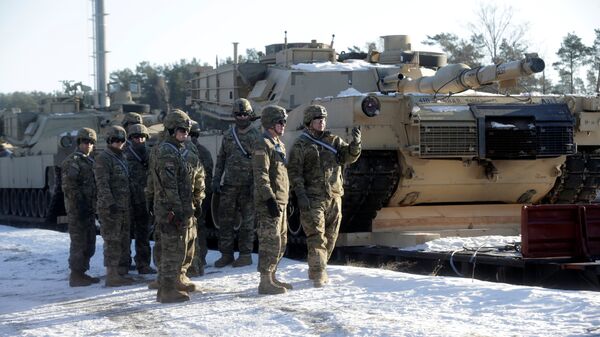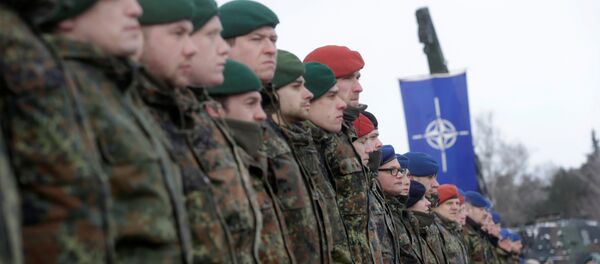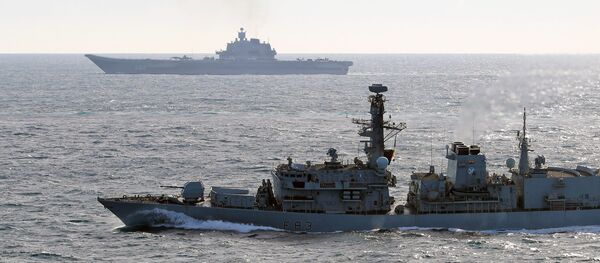The extra military presence is part of the Atlantic Resolve operation launched by the US military in April 2014, in the aftermath of the US-backed Maidan coup d'etat in Ukraine. US Army Europe claims its operation is "focused on deterring aggression against NATO allies in Europe."
Former US ambassador to the Soviet Union Jack Matlock and former German ambassador to NATO Joachim Bitterlich told Deutsche Welle that the operation serves no purpose but to increase tensions with Russia, which has no intention of invading its Eastern European neighbors.
"Russia is not going to attack a small NATO neighbor, and the US should under no circumstances go to war with Russia," Matlock said. "This is an insane idea."
Bitterlich agreed that Russia has no intention of invading the Baltics or Poland, regardless of what local politicians keen to whip up anti-Russian sentiment might say. He said that poor relations with Moscow are the result of the poor political decisions which have been made in Europe and the US over the last two decades.
"To Putin, the Baltics are already gone," Bitterlich said. "He doesn't really care about it, and the same goes for Poland."
"I believe that both the Americans and the Europeans have simply made too many mistakes towards Russia since the beginning of the century, that they misjudged Russia, needlessly cornered it, not hearing the warnings, the warnings about NATO expansion, about Georgia and about Ukraine," he added.
Bitterlich and Matlock agreed that US President Donald Trump's criticism of NATO and the crises facing the EU have provided a chance for both to reform, and build a more reasonable relationship with Russia.
"It will not happen overnight," Bitterlich said. "Those things take time and both sides need to save face, but if there is a will, there is a way. Americans will try to find this way under Trump, and it would be a good idea for Europeans to do the same and top this American effort."
"I'm a big fan of NATO, but they have to pay up," Trump said during a presidential debate in October.
Just five members of the alliance – Estonia, Greece, Poland, the UK and US – currently meet the stipulation, and on Monday Trump repeated his demand that all 28 members meet the target.
Last week, Trump visited US Central Command in Florida, where he met with senior military officials and announced his support for the NATO alliance, on the condition that other NATO members "pay their fair share."
"They're very unfair to us. We strongly support NATO, we only ask that all NATO members make their full and proper financial contribution to the NATO alliance, which many of them have not been doing," Trump told military officials at MacDill Air Force Base in Florida.
The UK's plan to leave the EU has also given Brussels the opportunity to increase defense co-operation outside of the framework of NATO. The idea of an EU army is supported by France, Germany, Italy and others but has long been opposed by the London.
Following the UK"s Brexit vote, France and Germany presented Eastern European EU members with their blueprint for an EU superstate. Their proposals included a common European security and defense policy, the establishment of a "European Security Compact" dealing with all aspects of security and defense at the European level.
Last week, Italian Defense Minister Roberta Pinotti said that the EU should enhance its defense co-operation, independent of NATO.
"European defense should be represented by a single bloc, both inside and outside NATO. There needs to be a Europe of 'two speeds' not only in the economic sense. We need a 'Defense Schengen' strengthening cooperation between Italy, France, Germany and Spain," Pinotti told Italian newspaper Il Messaggero.




